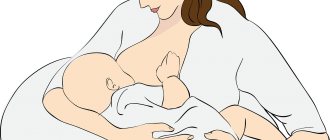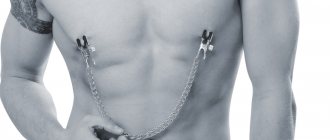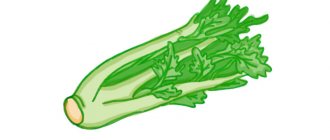Compound
Breast milk is the closest thing to mother's blood plasma. Considering that for nine months the fetus is nourished precisely with the help of the mother's blood circulation and given the ideal ratio of albumin and casein in breast milk, natural nutrition reduces the risk of allergic reactions. For the same reason, breastfed children are less likely to develop asthma.
Breast milk contains immunoglobulins and immunocompetent cells. They create passive immunity for the baby. It should be noted that the mother has close contact with the child and with his microorganisms, so her body produces specific antibodies and transmits them through breast milk.
Human milk contains a large amount of oligosaccharides. This promotes the proliferation of bifidobacteria and beneficial microflora. Breast milk contains enzymes that aid in digestion; hormones and growth factors that contribute to the mental and physical development of the child. For example, taurine is necessary for the development of nerve tissue.
Breast milk contains all vitamins, including vitamin D (however in smaller quantities, so it is necessary to supplement only this vitamin artificially).
What are the benefits of breast milk?
Natural feeding (mother's milk) - the “gold standard” of adequate nutrition - provides the child with a complex of essential nutrients. At the same time, the composition of human milk strictly corresponds to the physiological and metabolic characteristics of the child; it transforms throughout lactation, meeting the changing needs of the child.
Mother's milk is a source of a large number of biologically active compounds and protective factors (taurine, hormones, enzymes, nucleotides, immunoglobulins, growth and tissue differentiation factors, etc.) that provide regulation of growth and development processes, tissue differentiation, a high level of immunological protection, and risk reduction development of food sensitization.
Breastfeeding provides protection from the damaging effects of excess nutrients and the formation of adequate regulation of eating behavior. The work of the child’s muscular system, which ensures sucking of the mother’s breast, contributes to the formation of the dental system and is one of the preparatory stages of speech development. When breastfeeding, close psycho-emotional contact arises between mother and child, which existed during the period of intrauterine development of the child. Breastfeeding creates an atmosphere of security for the child, which has a beneficial effect on the child’s adaptive capabilities and the formation of behavioral reactions. Subsequently, this interaction is transformed into a stable and feeding-independent reaction to the mother.
Undoubtedly, breastfeeding has a beneficial effect on a woman’s body.
However, in some cases, human milk may contain undesirable components. When drinking alcohol, its concentration in milk is almost the same as in the mother's blood. When smoking, benzopyrene and other carcinogens are detected in milk.
The negative impact on the child of many medications supplied with mother's milk is known.
Mother and child bond
Breastfeeding promotes close contact between mother and baby. The mother's body produces exactly as much milk as the baby needs. Fat content also changes depending on the baby's needs.
Breastfeeding also has a positive effect on the mother herself. Lactation is a natural method of contraception (i.e. lactational amenorrhea). It has been found that breastfeeding mothers normalize their weight faster after pregnancy. In addition, during breastfeeding, a woman's body produces oxytocin, which reduces the risk of postpartum hemorrhage. Oxytocin constricts the vessels of the uterus and promotes the work of the muscles of the uterine muscles.
Types and modes of feeding children in the first year of life
There are three types of feeding:
- natural;
- mixed;
- artificial.
By natural we mean this type of feeding when a child for the first 4.5-5 months eats only human milk or its share is at least 80% of the daily volume.
With mixed feeding, human milk is less than 80% in volume and more than 20% is supplemented with milk formulas.
With artificial feeding, the share of human milk in the total nutrition is less than 20%, or the child receives only milk formula.
Conclusion
The benefits of breast milk are obvious, both for the baby and the mother. Breastfeeding provides adequate nutrition (except for the need for an artificial vitamin D supplement) and protects the mother from complications after pregnancy. But breastfeeding also has contraindications on the part of the mother (HIV infection, open form of tuberculosis) and on the part of the child (phenylketonuria, anatomical defects of the oral cavity). It is necessary to strictly follow the doctor's recommendations.
Breastfeeding is truly a gift given to humans by nature. This gift brings good health to the baby and also keeps the mother healthy. In our article we will look at the main benefits of breastfeeding for the baby and mother. Benefits of breastfeeding for a baby Breast milk is the food a baby needs for the first 12 months of life. The composition of breast milk is optimal, therefore. . . .
ContentsBaptism of a child: at what age is it better to do it?If the baby's life is in danger...Why is it allowed to baptize infants if they do not yet have an independent faith?Is it allowed to baptize a child during fasting days?Is it possible to baptize a child in winter?Do I need to pay for baptism? Is it necessary to name a child according to the calendar? Where to baptize a child? Is it possible to take photographs in church? Who to take as godparents? At what age can you become. . . .
Contents Know how to praise correctly Why to praise and encourage a child? How to punish a child correctly? Tips to help develop adequate self-esteem in a child. Test “Ten steps” or “Ladder” Game “Name” Play out situations Every person has an image of his own “I”. This “I” is formed from birth, and first of all depends on the attitude of our parents towards us, and only then the people around us. As you grow older. . . .
Contents For what reasons does sore throat occur in children? When is it necessary to hospitalize a child? Types of sore throat in children: What are the symptoms to recognize sore throat in children? How to treat catarrhal sore throat in children? How to treat lacunar and follicular sore throat in children? How to treat sore throat in children? Gargling for sore throat Local remedies for sore throat for children under three years of age - what should be taken into account? Antipyretic drugs When is it necessary to bring down the temperature? What antibiotic. . . .
Contents Reasons for acclimatization in children What are the symptoms to recognize acclimatization in children? Temperature during acclimatization in a child How many days does acclimatization last in a child? Stages of acclimatization in children How does a child acclimatize at sea? How does a child acclimatize in Turkey? How do children acclimatize after a trip to the sea? does acclimatization occur in infants? How does acclimatization proceed in children under 12 months of age? How to diagnose acclimatization. . . .
Often, women expecting a baby for the first time have doubts about whether they should breastfeed their baby. To understand how beneficial it is for the child and for the mother, it is worth evaluating all the benefits of breastfeeding. Indeed, despite the abundance of artificial nutrition and its improvement, mother's milk is still irreplaceable. If there are no compelling reasons for refusing to feed, there is no need to doubt its benefits and importance.
What are the benefits of breast milk?
Mother's milk is unique. It absorbs all the substances the baby needs. In addition, it is created by the female body specifically for each baby. Taking into account his needs and development characteristics.
According to Komarovsky, the natural way is always better when you are not sure that another way has advantages.
Here are the additional advantages the pediatrician notes:
Breastfeeding helps prevent your baby from developing the habit of thumb sucking. He satisfies the sucking reflex by applying himself to the mother's breast.
When going on a long trip, it is much easier to breastfeed your baby than to prepare formula on the road.
Mother's milk is completely sterile.
Moral satisfaction from closeness with the baby. The feeling that a child receives something that no one else in the world can give him.
Breastfeeding is the best solution for mothers who do not have medical conditions that prevent them from breastfeeding.
It is especially important in the first six months of a baby’s life. The optimal feeding time is until the child is 1 year old.
The list can be endless. Breastfeeding is one of the most exciting and interesting phenomena connecting mother and child during the first years of a child's life. Breastfeeding represents parental care and the wisdom of nature. For the health of mothers:
Successful recovery after childbirth.
The hormone oxytocin, produced when a baby sucks at the breast, promotes contractions of the uterus.
This is especially true in the first half hour after the birth of the baby for the safe separation of the placenta and the prevention of postpartum hemorrhage. The first breastfeeding and the first long-term feeding should be carried out immediately after birth - foreign doctors and WHO call for this in their document “Ten Steps Leading to Successful Breastfeeding.” Feeding the baby in the first 2 months will help the uterus restore its pre-pregnancy shape, and the neighboring abdominal organs will safely take their usual “places”. "Rest" of the reproductive system.
Thanks to breastfeeding, the mother's body produces the hormone prolactin, which is responsible for the amount of milk.
This hormone suppresses the production of estrogen and progesterone, hormones necessary for ovulation and changes in the walls of the uterus to allow a new pregnancy to occur. Thus, breastfeeding reliably protects against conception. However, it should be noted here that the necessary protective level of prolactin is maintained only
when feeding the child
in a natural way
: - the breast is given to the child as often and for as long as he wants, - during the day and, most importantly, at night (at least 3 times a night) ;
- the mother does not offer the baby foreign oral objects (pacifiers, bottles) for sucking; - complementary foods are introduced to the baby after 6 months, the volume of adult food increases very gradually; -at night the baby sleeps next to his mother and receives the breast at the first sign of restlessness in his sleep. -Research has shown that about 95% of mothers who breastfeed naturally remain unable to conceive again for an average of 13-16 months. And in a third of mothers, ovulation does not resume during the entire period of breastfeeding! Prevention of breast cancer.
Estrogen hormones promote the growth of cancer cells in the reproductive system and are closely associated with cancer formations.
As mentioned above, prolactin, the main “milk” hormone, suppresses estrogen production and slows down cell growth in general. Breastfeeding one child for at least 3 months reduces the risk of breast cancer and ovarian cancer by 50 and 25%, respectively. Also, breastfeeding improves mastopathy. There is even a natural way to treat this disease: breastfeed your baby for up to 3 years. The need for insulin
in patients with diabetes mellitus is reduced.
Calcium is absorbed better
during pregnancy, breastfeeding and for another six months after cessation of lactation! Foreign scientists came to such sensational conclusions in the course of a number of studies. Why then do some women have suspicions of a lack of calcium for their body during these periods of life? Most likely, the matter is in the improperly organized nutrition of the nursing mother. It is important not just to absorb foods containing this element in sufficient quantities. It is important to “help” calcium to be fully absorbed from food. Also possible causes of calcium deficiency may be a short (less than 3 years) interval between pregnancies and errors in organizing breastfeeding. Why? The fact is that the birth of a child causes a whole series of hormonal changes: pregnancy - childbirth - formation of lactation (up to 3 months after birth) - mature lactation - involution of lactation (between 1.5 and 2.5 years of the baby) - cessation of breastfeeding - return the body to the pre-pregnancy state (within six months). It is the work of hormones during these periods that contribute to more complete absorption of calcium. If this reproductive chain was interrupted (for example, the mother stopped feeding the baby before the onset of lactation involution, or a miscarriage occurred, or the mother rushed into a new pregnancy), if at any stage there was gross interference from the outside and the natural hormonal balance was disrupted (for example, artificial stimulation of labor, or lactation was interrupted by medication, or the woman uses hormonal contraceptives), if breastfeeding was not organized in a natural way, the hormonal system of the nursing mother does not work properly, and calcium may indeed be absorbed in insufficient quantities. Therefore, before blaming breastfeeding for tooth decay, think about whether you are doing everything in accordance with nature and common sense.
For the same reason, better absorption of calcium increases the risk of osteoporosis
(osteoporosis is a disease caused by the leaching of calcium salts from the bones) also decreases by 25% with each breastfed baby.
Perhaps this point will not seem very significant to many women. However, if you look around, age-related fractures are not that uncommon. And if you consider that they are difficult to compensate for, then it’s worth thinking about prevention in advance! Restoring normal weight.
One of the most important questions of a woman who has given birth is: “When will I again become as slim as before the start of pregnancy?”
Answer: in about a year - if you feed your baby naturally! The fact is that during the period of bearing a baby, the mother’s body “makes reserves” for subsequent feeding: what if there is a crop failure? or a natural disaster? or drought? The mother should have a lot of “spare” calories prepared for milk production in the first, most important year of the baby’s life. Therefore, there is absolutely no need to follow diets for weight loss - they, as a rule, will not help restore pre-pregnancy weight. Nature has provided only one way to restore former attractiveness - long-term breastfeeding. Prevention of depression.
Strengthens maternal instinct .
In the absence of breastfeeding after childbirth, if problems arise with feeding, or if it is abruptly interrupted, the mother experiences a sharp drop in the level of female sex hormones. So-called endogenous depression begins, to overcome which professional help from a psychotherapist is often necessary. In turn, if breastfeeding is successful, a nursing woman will have large amounts of neuropeptide hormones, including the well-known hormone endorphin. Its action causes a state similar to the joyful, elated state of two lovers: “we are knee-deep in the sea, the main thing is that I have you, and that we are together!” Such a mother endures difficulties with courage, happily cares for the baby, radiates emotional satisfaction and, despite frequent fatigue, seems to fly on the wings of love. Stronger immunity.
This is caused by increased metabolism in the body of a nursing mother.
Intensive metabolic processes accelerate the elimination of toxins, increase the rate of bone and tissue renewal, and also make the mucous membrane of the nasopharynx less susceptible to infectious agents. Increased resistance to stress.
This effect is achieved thanks to the work of two hormones: - prolactin - is a strong tranquilizer. It seems to send a signal to a nursing mother: “Calm down, don’t be nervous, everything will be fine...” - oxytocin - helps a woman focus primarily on the needs of a small child, leaving worries about various everyday occasions as if on the periphery of consciousness. Thus, during the period of breastfeeding, a woman builds a clear system of life values, the internal space is more consciously structured, the reaction to events in the outside world is streamlined, and additional mental resources appear to solve various problems.
To the above, I would like to add that breastfeeding also has indirect benefits for mothers’ health:
It is extremely economical!
Instead of spending on artificial formulas, bottles, pacifiers, nipples, sterilizers, food warmers, medications for a baby who will get sick much more often than a baby on breast milk, the mother has the opportunity to buy something else. For a wellness trip to the sea, for example, or a visit to the pool, massage sessions and cosmetologist services.
Emotional connection between mother and child
, which arises in the process of natural feeding, will also play a positive role in preserving mother’s health. You ask how? As you know, all diseases are caused by nerves. And a child with whom there is no deep and trusting contact can greatly spoil the parents’ nerves!
For the health of babies:
Natural feeding is the most physiological, its advantages are undoubted, since the structure of mother's milk is close to the composition of the child's tissues.
Human milk is completely devoid of antigenic, that is, allergenic properties.
.
significantly increases the risk of allergic diseases even in those children of the first year of life who do not have a hereditary predisposition to them. The total amount of protein in breast milk is optimal for the baby
.
Even modern infant formulas contain almost 1.5 times more protein than breast milk. The protein content in breast milk is very stable and practically does not change even when the mother is ill, exhausted, or malnourished. With artificial feeding, protein overload inevitably occurs, which is accompanied by intoxication, excessive load on the immature liver and kidneys of infants, and leads to excessive weight gain body, sometimes the development of diabetes mellitus, as well as delayed development of the child’s nervous system. In schoolchildren who stayed for 4-9 months. On breastfeeding, intellectual capabilities are higher. Among children with difficulties in school learning, children who were bottle-fed predominate. This statement is true for all countries, including industrialized ones with low levels of infant morbidity and mortality. Human milk, especially colostrum, is rich in protective immunoglobulins (antibodies)
. Therefore, the morbidity and mortality of breastfed children is significantly lower than with artificial feeding. The level of antibodies after vaccination when breastfeeding is higher than when using formula, which indicates better protection against infections against which the child is vaccinated.
Bottle feeding may contribute to infant obesity
. During puberty, that is, at the age of 11-14 years, such children often experience secondary obesity, which persists throughout life with subsequent problems (diseases of the cardiovascular, nervous, endocrine, skeletal and other systems already in adulthood) condition).
Breast milk contains the required amount of polyunsaturated fatty acids
(PUFA).
These acids are necessary for the proper formation of the nervous system, especially the brain, they increase resistance to age-related vascular diseases (atherosclerosis), their level correlates with human life expectancy. PUFAs promote the action of vitamins and increase the percentage of protein digestibility. Their deficiency leads to the predominance of excitation processes in the central nervous system. Carbohydrates, mainly the milk sugar lactose, are found in relatively large quantities in breast milk
. They largely determine which microbes predominate in the child’s intestines, stimulate the growth of normal microbial flora with a predominance of bifidobacteria, thereby suppressing the growth of pathogenic microbes and protecting against dysbiosis. Carbohydrates are also involved in the formation of B vitamins in the child’s body, promote the absorption of calcium and iron, and are also essential, especially lactose, for the formation of the baby’s brain tissue.
With natural feeding, calcium and phosphorus are well absorbed,
Therefore, children suffer from rickets much more easily and less often. The content of bioelements such as sodium, magnesium, chlorine, iron, copper, zinc, cobalt, sulfur, selenium in breast milk is optimal and meets the baby's needs. Even in adapted, that is, milk formulas close in composition to human milk, there is often not enough selenium, which is necessary for the mental development of children, while in human milk its level is optimal.
Breast milk, especially with long-term feeding (up to 2-3 years), can subsequently protect the human body from such chronic diseases as diabetes, multiple sclerosis, gastroduodenitis, cholecystitis, gastric and duodenal ulcers. When breastfeeding, children develop a correct bite and normal formation of the sound articulation apparatus, which further contributes to the formation of speech and the prevention of caries. It has been shown that with natural feeding, sexual potency is better in the future, fertility is higher (fertility)
. Perhaps some of the infertility is associated with early artificial feeding of future parents. It has been proven that the duration of lactation depends on the type of feeding of the woman herself - with breastfeeding, the likelihood of full lactation increases.
With natural feeding, a lifelong relationship with the mother is formed,
its subsequent influence on the child’s behavior shapes future parental behavior. In bottle-fed animals, it is sharply perverted: when they become adults, they refuse to feed their offspring. Psychologists who deal with issues of family relationships attach great importance to natural feeding.
Thus, refusal of natural feeding is a gross violation of the biological chain “pregnancy - childbirth - lactation”
.
The mammary glands of a nursing mother are a powerful barrier that
rarely allows pathogenic microbes, heavy metal salts and other products harmful to the baby to pass through. Toxic substances, for example, dioxins, under unfavorable environmental conditions, can enter women's milk, but such negative effects from them have not yet been established that would outweigh the positive effects of breastfeeding on the development of the child. Therefore, you need to be quite careful about such recommendations as abandoning breastfeeding and switching to infant formula due to the unfavorable environmental situation in this region.
When breastfeeding, in comparison with artificial feeding, there is a slight slowdown in biological maturation, which increases human life expectancy
.
Breastfeeding is a true gift of nature to man. This gift brings health to the child and keeps the woman healthy.
Benefits of breastfeeding for a baby:
- Breast milk is the ideal food for a baby in the first year of life. It is optimal in its composition. Better than any other product based on cow's or goat's milk, it is suitable for feeding a baby. Proteins, fats, minerals and vitamins are absorbed best when breastfed.
Breast milk is made up of special whey proteins. They have high biological value, are easily digested and absorbed. They contain all the essential amino acids, in particular cystine and taurine, necessary for the full development of the baby. It is especially important that breast milk’s own proteins do not cause allergic reactions and manifestations in the child, which we often see when using artificial formulas based on cow’s milk.
Breast milk fats contain large amounts of special beneficial fatty acids, which are easily broken down and absorbed by immature intestinal enzymes. Milk itself contains the enzyme lipase, an enzyme that ensures the digestion of fats. It is lipase that provides soft stools, protection against constipation and colic.
Carbohydrates in breast milk are predominantly lactose (milk sugar). It is this that provides the optimal acidic environment in the intestines for babies and prevents the growth of pathogenic microorganisms in it.
The energy value (calorie content) of breast milk fully meets the newborn's energy needs. Breastfeeding allows the baby to eat according to his appetite, allowing him to adapt to his needs in a flexible way that, apparently, will never be possible with bottle feeding.
Breast milk contains enzymes, hormones and other biologically active substances that are extremely important for the growth and development of the baby.
The uniqueness of breast milk is that it “adapts” to your baby’s intestines, facilitating the adaptation of the entire gastrointestinal tract, ensuring its proper colonization with beneficial microorganisms. Thanks to this, intestinal flora can be restored without the use of drugs.
Breast milk contains a unique composition of immune factors (secretory immunoglobulin A, lactoferrin, lysozyme). Thanks to them, human milk has powerful anti-infective properties. Moreover, the immune protection of milk is individual for each baby. With mother’s milk, protective antibodies are transferred to the child from many pathogenic bacteria and viruses. These substances are absent in formulas and animal milk. This is why breastfeeding is so important for a child in the first year of life. Indeed, during this period, the children's immune system is not yet sufficiently developed, does not function at full strength, and children are so susceptible to infection.
Breast milk protects the baby in the summer when there is an increased risk of intestinal infections, and in the winter when the threat of viral diseases is high. The correct physiological colonization of the intestines with beneficial bacteria, which we discussed above, also plays a big role in the protective forces of the child’s body.
Breastfeeding forms a correct bite around the nipple, reduces the incidence of dental problems in early childhood, and reduces the incidence of caries.
It is important that breastfeeding provides close emotional and psychological contact between the baby and the mother. Breastfeeding creates an amazing feeling of security, closeness and trust that lasts for many years. Nothing compares to these happy moments of feeding, when the baby gives his mother his first smiles.
Finally, breast milk does not need to be prepared and is sterile and at the correct temperature.











